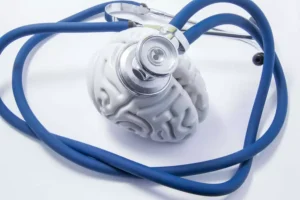Что означает Буст Игровой сленг
October 25, 2021Addiction treatment must be integrated into the health care system
November 3, 2021These psychological conditions are often intense enough to interfere with life functioning, and the symptoms are often recognized by physicians and other health care providers as serious enough to require treatment. When depressed or anxious alcohol-dependent people are asked their opinions about cause and effect, they often reply that they believe they drink in order to cope with their symptoms of sadness or nervousness. Some of the diagnostic confusion can be made clearer through 1) a careful diagnostic interview that focuses on the chronology of symptoms relating to both the AUD and psychiatric disorder, and 2) obtaining collateral information from family members or significant others about symptoms and their temporal course. Moreover, an appropriate medical evaluation may also be prudent to ensure that mood symptoms are not the result of reversible medical issues such as hypothyroidism.
- Another way that depression could lead someone to drink alcohol is through changes in their brain as a result of depression.
- The specific effects of alcohol on antidepressants depend on the antidepressant a person takes.
- Hence, some studies have investigated different treatment modalities and examined depression treatment outcomes in these patients.
- On the other hand, both conditions also share certain risk factors, such as genetics and social isolation.
- Moreover, clinicians can help guide patients to self-help groups that best fit their particular demographic profile (young persons, women, SMART, gay/lesbian/transgender), which may also enhance their engagement in these groups.
Life on Campus
Your doctor will likely conduct a physical exam and a psychological evaluation. These tests help them calculate your risk factors for either condition. This multi-test approach will help them rule out other conditions that might account for your symptoms. Alcohol use disorder and depression are two conditions that often occur together.
Alcohol use and depression symptoms
Similar results have been generated from some, but not all, studies of alcoholism in relatives of patients with severe anxiety disorders. For example, an evaluation of 1,047 adult relatives of 193 subjects with severe anxiety disorders revealed no increased risk of alcoholism among the relatives, with the exception of the relatives of those patients who had exceptionally early onsets of their psychiatric disorders (Goldstein et al. 1994). Nor did a review of several recent studies by Fyer and colleagues1 and Noyes and colleagues1 reveal https://ecosoberhouse.com/ high rates of alcoholism in relatives of people with social phobia or other anxiety disorders (Schuckit and Hesselbrock 1994). Vaillant (1995) has conducted a 40-year followup of 2 samples, one including more than 200 college men and the other including more than 450 blue-collar boys who were ages 11 to 16 at the time of the original study. Information was available on the subjects’ psychiatric symptoms and AOD-use patterns and problems, both at the time of enrollment into the study and at several points during the long-term follow-up.

Psychosocial treatments and mutual help
Take the free Drinking Check to understand more about how much alcohol you’re drinking and to receive personalised results and guidance on how to cut back if you need to. This CME/CE credit opportunity is jointly provided by the Postgraduate Institute for Medicine and NIAAA. To have a full picture for patient care, patients with AUD should be screened for other substance use. Stigma can be reduced with normalization statements such as “Many people try (cannabis or painkillers in ways that are not prescribed) at some point in their lives; is that something you have tried?
- This, combined with heightened mood states, can have some unpleasant effects.
- Recovering from depression and AUD is difficult because the disorders can worsen one another.
- In addition, attempting to stop drinking and going through withdrawal can worsen depression, making it even harder to quit.

If you drink more than the UK Chief Medical Officers low risk drinking guidelines (it’s safest to drink no more than 14 units a week, spread over three or more days with several drink-free days, and no bingeing) it can have a negative effect on your brain chemistry, and lead to worse mental health. But with the right treatment and support, most people with depression can make a full recovery. Early in treatment, patients may have different levels of motivation to address their co-occurring AUD and depression. MET is an evidenced-based method of engaging patients to help evoke their own motivation to resolve this ambivalence in favor of ultimately changing problematic behaviors. It can be brief, and is based on the notion that a person’s level of motivation for change is malleable.
In particular, for patients with more severe mental health comorbidities, it is important that the care team include specialists with the appropriate expertise to design personalized and multimodal treatment plans. The prevalence of comorbidity of depression and alcohol use disorders (AUD) has been demonstrated in a number of researches [1–4]. Depression in an alcohol-dependent person has been reported to not only lower the resolve to resisting alcohol use, but may also lead to use of alcohol to relive the depressive symptoms [5, 6]. It is important to understand the significance of cooccurrence of depression and alcohol use disorders since this may explain why majority of cases relapse after treatment for alcohol dependence [5, 6].
However, use of anti-depressants significantly reduced the incidence of anxiety, insomnia, and substance abuse in these patients [16]. As for depression co-existing with alcohol dependence, Jordans et al. [17] evaluated the use of psychotherapy combined with anti-depressants for patients with depression and alcohol dependence. They showed that psychotherapy addition would improve treatment success rates, especially when delivered by community-based counselors, after one year of follow-up. One study by the National Institute on Alcohol Abuse and Alcoholism found that people with alcohol use disorder (AUD) were 2.3 times more likely to have major depressive disorder than people who did not have AUD. There is a strong link between alcohol use and depression, a mental health condition that includes feelings of hopelessness, emptiness, fatigue, loss of interest, and more. But does regular drinking lead to depression, or are people with depression more likely to drink too much alcohol?
How alcohol can affect your mood
There was no statistically significant association between depression and sociodemographic characteristics. A researcher-designed sociodemographic questionnaire (SDQ) was administered at intake to provide necessary information including that which was needed for followup of participants. Alcohol Smoking Substance Use Identification Screening Test (ASSIST) [49] was used to screen for alcohol and other substance use and alcohol-related problems.

Because little evidence exists of an increased risk for obsessive-compulsive disorder among alcoholics, pharmacological treatments aimed at this severe anxiety condition also are inappropriate in the absence of additional evidence of an independent anxiety syndrome. Although more data are needed, at least one study indicates that buspirone, a medication useful for treating a general nervous condition called generalized anxiety disorder, may be helpful to some alcoholics, especially those with high levels of anxiety symptoms that persist after abstinence (Kranzler et al. 1994). alcohol and depression For example, the sequential approach can be particularly useful when a patient is hospitalized in the context of an acute exacerbation of one disorder, e.g., when the patient is acutely suicidal or experiencing medically complicated withdrawal. The parallel approach avoids this potential pitfall of the sequential model, and seeks to treat co-occurring disorders simultaneously. In settings where expertise in both depressive disorders and AUDs may not be accessible from a single clinician or treatment program, this can be a viable alternative to sequential treatment.